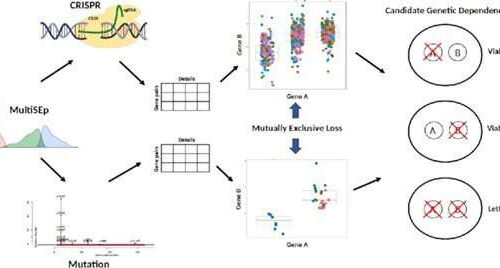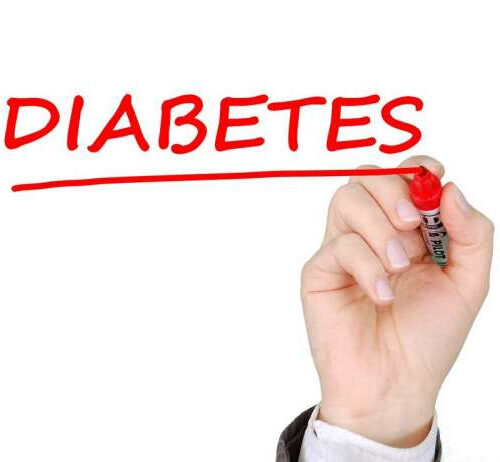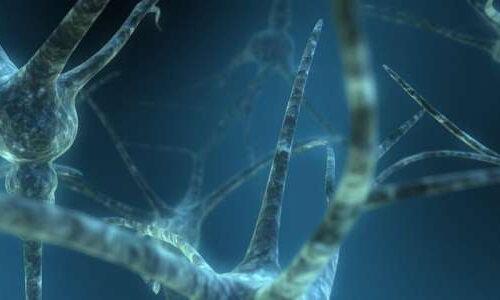by Queen’s University Belfast Graphical Abstract SynLeGG utilizes MultiSEp gene expression clusters to partition CRISPR essentiality scores (top) and mutations from whole exome sequencing (bottom), in order to predict candidate genetic dependency relationships, including synthetic lethality. Credit: Nucleic Acids Research (2021). DOI: 10.1093/nar/gkab338 In a groundbreaking first, research led by Queen’s University Belfast has found thousands of “Achilles Heels’ or ‘cancer...
Defective gene slows down brain cells
by Institute of Science and Technology Austria When analyzing the brain of the mice whose Cullin 3-Gen has been partially deactivated, the scientists found malformations of the cortex. Credit: © IST Austria Within the European Union alone, about 3 million people are affected by an autism spectrum disorder (ASD). Some are only mildly affected and can...
Diabetes vaccine gives promising results in a genetic subgroup diabetes
by Linköping University Credit: Pixabay/CC0 Public Domain A clinical study led by Linköping University, Sweden, and financed by pharmaceuticals company Diamyd Medical has investigated whether immunotherapy against type 1 diabetes can preserve the body’s own production of insulin. The results suggest that injection of a protein, GAD, into lymph nodes can be effective in a subgroup...
Researchers discover link between local oxygen depletion in the brain and Alzheimer’s disease
by University of Seville Credit: Pixabay/CC0 Public Domain The study, published in the journal Nature Aging and led by the laboratories of Dr. Alberto Pascual (CSIC), from the Neuronal Maintenance Mechanisms Group, and Prof. Javier Vitorica (University of Seville/CIBERNED) of the Physiopathology of Alzheimer’s Disease Group at IBiS, demonstrates for the first time that low oxygen levels in...
Families with a child with ADHD can benefit from mindfulness training
RADBOUD UNIVERSITY MEDICAL CENTER Children with ADHD are generally treated with medication and/or behavioral treatments. However, medication-alone is insufficient in a quarter to a third of the children. For that reason, the scientists investigated whether a mindfulness-based intervention (MBI) would have a positive effect on children who did not respond sufficiently to other ADHD treatments....
Study: Don’t count on caffeine to fight sleep deprivation
MICHIGAN STATE UNIVERSITY Rough night of sleep? Relying on caffeine to get you through the day isn’t always the answer, says a new study from Michigan State University. Researchers from MSU’s Sleep and Learning Lab, led by psychology associate professor Kimberly Fenn, assessed how effective caffeine was in counteracting the negative effects of sleep deprivation...
COVID-19 mortality associated with 2 signs easily measured at home
UNIVERSITY OF WASHINGTON SCHOOL OF MEDICINE/UW MEDICINE A study of 1,095 patients hospitalized with COVID-19 discovered that two easily measurable signs of health – respiration rate and blood-oxygen saturation – are distinctly predictive of higher mortality. Notably, the authors said, anyone who receives a positive COVID-19 screening test can easily monitor for these two signs at home....
Moderate use of hair relaxers does not increase breast cancer risk among black women
BOSTON UNIVERSITY SCHOOL OF MEDICINE New study fills an important knowledge gap about the potential health effects of hair relaxers commonly used by Black women. (Boston)–The lifetime risk of breast cancer is similar among Black and white women in the U.S., but Black women are disproportionately affected by aggressive breast cancer subtypes such as estrogen...
Good news: Mild COVID-19 induces lasting antibody protection
WASHINGTON UNIVERSITY SCHOOL OF MEDICINE Months after recovering from mild cases of COVID-19, people still have immune cells in their body pumping out antibodies against the virus that causes COVID-19, according to a study from researchers at Washington University School of Medicine in St. Louis. Such cells could persist for a lifetime, churning out antibodies...
No link between milk and increased cholesterol according to new study of 2 million people
by University of Reading Credit: Pixabay/CC0 Public Domain Regular consumption of milk is not associated with increased levels of cholesterol, according to new research. A study published in the International Journal of Obesity looked at three large population studies and found that people who regularly drank high amounts of milk had lower levels of both good...





